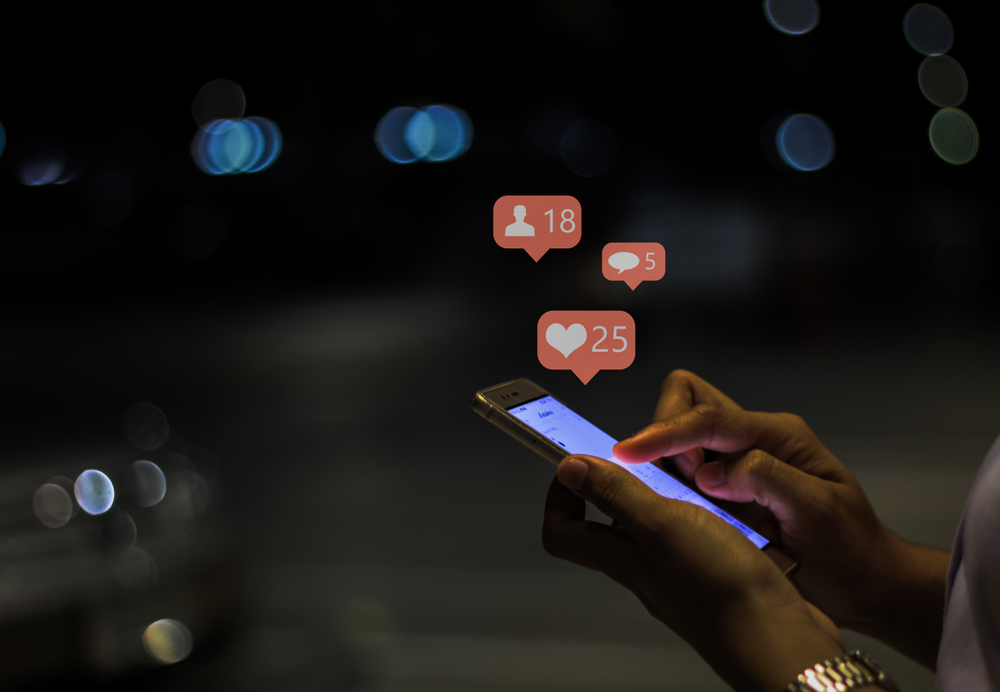My excuse for using social media is that it helps me stay in touch with friends who live far away. Clicking ‘like’ is the busy introvert’s dream. Alone with our screens, we can still interact with friends, letting one know that we admired her vacation pictures, expressing sympathy for another’s crisis, and celebrating the professional success of the third. We can keep up with both current friends and people from our distant past. Social media makes it easy: Click, click, click, done.
Really? Meh. Likes are cheap and we get what we pay for.
The reality is that social media doesn’t do what I pretend it does. I click ‘like’ and tell myself that I’m connecting with my old friend. But I’m not. Bringing the number of likes on her post from 35 to 36 doesn’t connect me to her in any significant way. It just lets me think that I’ve connected with her. But social media doesn’t give us the deep social interactions that we need. It doesn’t let us have conversations that connect our souls and nourish us; it doesn’t give us the shared experiences that solidifies our friendships.
A few years ago, I got a visceral reminder of how unsatisfactory ‘like’-type interactions on social media can be. Good friends were suddenly writing ‘happy birthday’ to me on social media instead of calling me. I got many more birthday wishes than ever before, but the experience still left me feeling vaguely ignored and a little sad. I didn’t learn anything though. I continued to use social media in the same way that they did.
So can’t we just be more mindful, say, carefully choosing between ‘likes’ and phone calls on each occasion? That’d be nice. The problem is that most of us aren’t mindful enough for that to work. It’s quicker and easier to type ‘happy birthday’ on social media than to make a phone call, and we’re all busy and inclined to cut corners. And since social media lets us to maintain connections with lots of people, we now have many more people to stay in touch with. So we just click ‘like’.
Recognizing that more drastic steps are needed, Cal Newport argues that we should simply stop clicking ‘like’. Why? Eliminating the fake way of staying in touch opens space for exploring real and better ways. I adopted his approach several weeks ago, and I love it. When I’m inclined to click ‘like’ on a friend’s post, I now have to think: Does this friendship matter to me? If it does, what do I want to do to nourish it? And I’ve made positive changes. Since I wasn’t able to ‘like’ her post, I ended up calling a good friend who I hadn’t spoken to in over a year. We had a wonderful conversation and we decided to speak more regularly. Instead of adding sympathetic sad emoji to the posts of a friend who is struggling right now, I reached out and made plans to see her for a long chat. And I’m pondering other possibilities.
I can’t keep in touch with this way with all my social media people, and I don’t want to. The selectivity is important. We know that ‘likes’ are cheap. Reaching out in real ways says that you’re not just one of my social media friends. You matter in my life, I care about you, and I value your friendship. These are messages that we all so badly need to hear. ‘Likes’ we can do without.
The fine print
Cal Newport discusses not clicking ‘like’ in Digital Minimalism– one of my favorite books so far this year. In discussing the effects of social media on our relationships, he is drawing on Sherry Turkle’s Reclaiming conversation: The power of talk in a digital age (next on my reading list).
My experiments with Newport’s 30 day digital declutter program here.
Some of my closest friends (you know who you are!) never drifted away from birthday calls and real conversations. Thank you from the bottom of my heart!
Follow us here and subscribe here for all the latest news on how you can keep Thriving.
Stay up to date or catch-up on all our podcasts with Arianna Huffington here.


